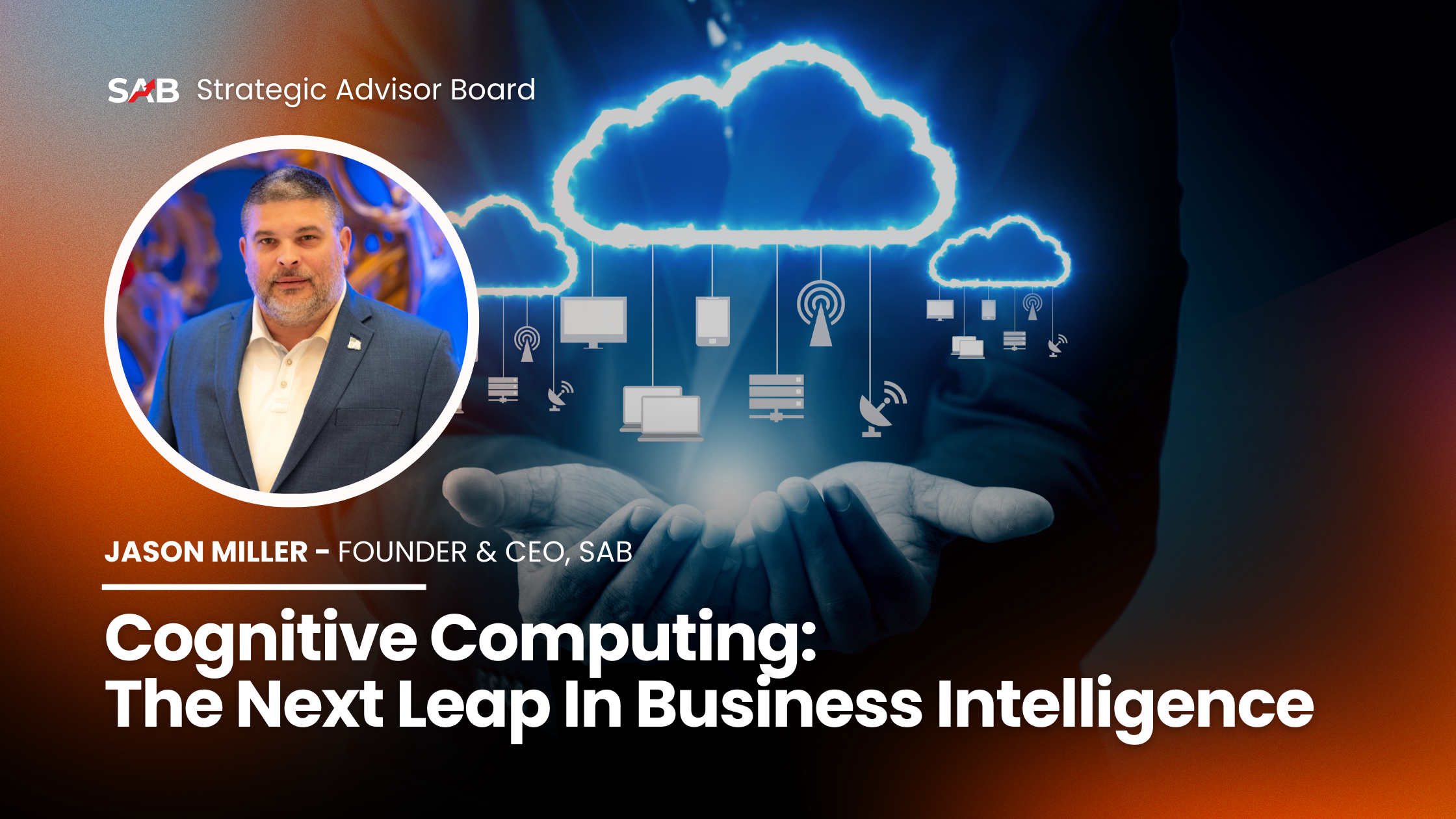
In the rapidly evolving landscape of technology and business, cognitive computing emerges as a groundbreaking force, heralding the next leap in business intelligence (BI). This innovative domain transcends traditional data analysis techniques, offering businesses unprecedented insights and capabilities. Cognitive computing, with its ability to mimic human thought processes in a computerized model, is not just an upgrade to existing BI tools; it represents a paradigm shift in how businesses leverage data to make decisions, innovate, and understand their customers.
At its core, cognitive computing involves self-learning systems that use data mining, pattern recognition, and natural language processing to mimic the way the human brain works. This approach allows businesses to analyze vast amounts of data in a context that mirrors human understanding, leading to more nuanced and intelligent insights. The adoption of cognitive computing marks a significant departure from traditional BI, moving beyond mere data visualization and descriptive analytics to predictive and prescriptive analytics that can anticipate trends and offer solutions.
One of the most compelling advantages of cognitive computing is its ability to enhance decision-making processes. By sifting through and analyzing massive datasets, cognitive systems can provide businesses with insights that were previously unimaginable. These systems can identify patterns and trends that human analysts might overlook, offering recommendations that are informed by a comprehensive analysis of both structured and unstructured data. This capability enables executives to make more informed decisions, backed by data-driven insights that are both deep and broad.
Cognitive computing also revolutionizes how businesses interact with and understand their customers. By analyzing customer data in real-time, cognitive systems can provide a 360-degree view of customer preferences, behaviors, and needs. This level of insight makes it possible for businesses to offer highly personalized experiences, products, and services that meet individual customer needs, significantly enhancing customer satisfaction and loyalty. Moreover, cognitive computing can predict customer trends and behaviors, allowing businesses to stay ahead of market shifts and tailor their strategies accordingly.
Another area where cognitive computing is making significant inroads is in improving operational efficiency. By automating complex processes and decision-making, cognitive systems can help businesses optimize their operations, reduce costs, and improve service delivery. For example, in supply chain management, cognitive computing can predict disruptions and automatically adjust logistics to maintain efficiency. Similarly, in financial services, it can analyze market data to inform investment strategies, manage risks, and detect fraud in ways that traditional systems cannot match.
Despite its potential, the implementation of cognitive computing is not without challenges. Businesses must navigate issues related to data privacy, security, and ethical use of AI. Moreover, the success of cognitive computing depends on the quality and quantity of data available, as well as the business's ability to integrate cognitive systems into their existing IT infrastructure. Organizations must also consider the need for skilled personnel who can manage and interpret the outputs of cognitive computing systems.
Looking forward, the role of cognitive computing in business intelligence is set to grow exponentially. As businesses become increasingly data-driven, the demand for advanced analytics that can provide deeper insights and foresight will continue to rise. Cognitive computing will become integral to business strategies, driving innovation, competitive advantage, and customer satisfaction.
Furthermore, as cognitive technologies evolve, their applications in business will expand beyond current uses. We can anticipate developments in areas such as emotional AI, which seeks to understand and respond to human emotions, offering even more nuanced customer interactions. Additionally, the integration of cognitive computing with other emerging technologies, such as blockchain and IoT, promises to unlock new possibilities for businesses, from enhancing security to enabling smarter, more connected ecosystems.
Cognitive computing represents the next leap in business intelligence, offering businesses the tools to navigate the complexities of the modern market with unprecedented agility and insight. By leveraging cognitive computing, organizations can unlock deeper insights, enhance decision-making, and personalize customer experiences to a degree that was previously unattainable. As we move forward, the integration of cognitive computing into BI strategies will not be just an option; it will be a necessity for businesses aiming to lead in their industries. The future of business intelligence is cognitive, and the journey there is one filled with immense potential and transformative possibilities.
Are you interested in growing your business with little or no work on your part? Check out our 1-Day Power Intensive to see if it’s right for you!